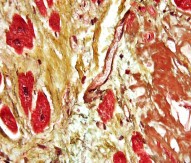
Need to focus on maternal wellbeing cited
Europe must consider introducing specialist maternity guidelines for immigrant women, according to Birgitta Essén and Pauline Binder-Finnema in the Women’s and Children’s Health department of Uppsala University, Sweden.
The authors said it was important funding was made available to assist women of different cultures during maternity.
“Without proper financial investment into research that explores the care preferences and decisive care-seeking behaviours of different ethnic and minority groups, all pregnant immigrant women will remain subjected to maternity care guidelines that can be ill-fitting to their own needs. Guidelines may ill-fit because they were compiled from studies or clinical experience conducted with host-country women.
“Socio-cultural factors are the mainstay of medical anthropology and yet because of these factors have been neglected from the investigative lens of clinical researchers and European health policy makers, so too has the necessity to engage medical anthropologists as policy advisors on these aspects of women’s maternity care. An additional question is thus to ask how treatment might be translated into best practice when a Somali woman refuses caesarean section, for example. This situation surely places a heightened potential for negative outcome outside the evidence-based dialogue, and becomes neither cost-effective nor lifesaving.”
The authors highlighted two EU member states with high proportions of immigrant women and it was important investment under Horizon 2020, the EU’s next research framework programme, would be dedicated to exploring new cultural guidelines.
“Of all European countries, the United Kingdom and Sweden have the most immigrant women giving birth annually. Therefore, if the Horizon 2020 strategic initiative for Europe neglects adverse maternal outcomes as a rarity and as something more appropriate to the global arena, then Europe may miss its opportunity to ensure optimal wellbeing for all of the women and children who reside here. The requirement for diverse maternity care reflects that immigrant women of childbearing age are in Europe to stay.”
Health will receive an estimated €8bn of funding under the Societal Challenges pillar of Horizon 2020, including €254m for the European Institute of Innovation and Technology which will develop create a new Knowledge Innovation Community for the sector.




